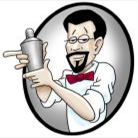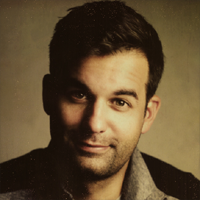I spent the five happiest years of my life in a morgue. As a forensic scientist in the Cleveland coroner’s office I analyzed gunshot residue on hands and clothing, hairs, fibers, paint, glass, DNA, blood and many other forms of trace evidence, as well as crime scenes. Now I'm a certified latent print examiner and CSI for a police department in Florida. I also write a series of forensic suspense novels, turning the day job into fiction. My books have been translated into six languages.
As I said above, patience, attention to detail, a tolerance for the more tedious parts of the job, and an affinity for science. A strong stomach helps but I knew guys who were homicide detectives for twenty years and still got queasy at the smell of a dead body, so don't let that stop you.
Every agency--police departments, M.E. offices, state police--has their own rules and requirements. The best thing to do is check the websites or contact the agencies where you'd like to work and ask them.
I couldn't tell you the exact chemistry, but it reacts with the iron present in hemoglobin to indicate blood. However it also reacts with other oxidizing agents such as copper and horseradish. Unlike what you see on TV, we don't spray luminol and then use a UV light or some such thing. We make the room as dark as possible, spending a lot of time taping material over windows and door cracks and 'ready' lights, then spray the luminol.or Bluestar. It will glow on its own without any additional equipment, and won't last long. It can be photographed but that's a bit of work. It won't stain or harm anything.
I've worked in forensics since 1994. The best part of the job is making a fingerprint 'hit' that tells us who the bad guy is, or working a crime scene and finding or concluding something that helps explain what happened there. The worst part is being stressed by detectives or attorneys who want all the answers right now and don't understand what they're asking for, or testifying in court and having no idea what's going to be thrown at you.
Bartender
 How often would you date customers?
How often would you date customers?
Stand-Up Comedian
 What's your worst bombing story?
What's your worst bombing story?
Police Officer
 Have you ever been shot or seriously injured on the job?
Have you ever been shot or seriously injured on the job?
No, because simply from a news article you have no idea of everything that is going on. The officers might not be (should not be) telling reporters everything they know, in order to weed out truthful and untruthful witnesses. They're also not going to tell reporters (and if they did the reporters wouldn't write it) every last little boring tedious detail of everything they do. And information often gets garbled in translation, from crime scene to cops, from cops to the information officer, from the info officer to the press release, from the press release to the news article, from the neighbor looking over their fence and then talking to the reporter. That's just human.
Lots of time the story I get from Dispatch when they first call me turns out to be a totally different thing when I get there.
Oh yes, I'm extremely smart. Just kidding! No, you don't have to be some kind of friggin' genius like you see on TV. You just have to be reasonably intelligent, reasonably sensible, reasonably observant, and have a good amount of attention to detail, respect for rules, and patience. It also helps to be pleasant and able to get along with people. Even though most of our victims are dead, the families, witnesses, cops and detectives are very much alive and under a lot of stress.
Yes, take all the science classes you can and try to visit local labs to see what the job is really like.
-OR-
 Login with Facebook
Login with Facebook (max 20 characters - letters, numbers, and underscores only. Note that your username is private, and you have the option to choose an alias when asking questions or hosting a Q&A.)
(A valid e-mail address is required. Your e-mail will not be shared with anyone.)
(min 5 characters)
By checking this box, you acknowledge that you have read and agree to Jobstr.com’s Terms and Privacy Policy.
-OR-
 Register with Facebook
Register with Facebook(Don't worry: you'll be able to choose an alias when asking questions or hosting a Q&A.)